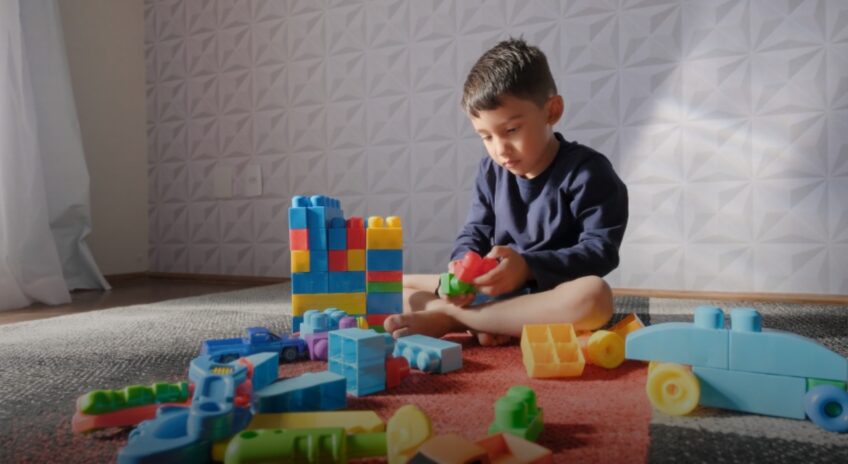Autism Spectrum Disorder (ASD) is a complex neurodevelopmental condition that affects individuals in various ways.
One of the hallmark challenges faced by children with autism is social interaction. Engaging in meaningful social interactions is essential for personal growth and development.
In this article, we will explore strategies to unlock the social potential of children with autism, helping them build connections and thrive in social settings.
But for a comprehensive guide on strategies to unlock the social potential of children with autism, visit this page.
Understanding Autism and Social Interaction

Autism, or Autism Spectrum Disorder (ASD), is a lifelong neurodevelopmental disorder characterized by a range of symptoms, including difficulties in communication, repetitive behaviors, and challenges in social interaction.
It’s important to remember that autism is a spectrum, meaning that individuals with ASD can vary greatly in their strengths and weaknesses.
The Importance of Social Interaction
Social interaction is a fundamental aspect of human life. It allows us to form relationships, share experiences, and learn from one another. For children with autism, the journey toward meaningful social interactions may require some guidance and support, but it is a crucial part of their development.
Strategies to Enhance Social Interaction
1. Early Intervention
Early intervention is key to helping children with autism develop their social skills. The earlier a child receives support and guidance, the more effectively they can build a foundation for future interactions. Parents and caregivers should seek professional help as soon as they notice signs of autism.
2. Individualized Approaches
Every child with autism is unique, and what works for one may not work for another. It’s essential to tailor strategies to each child’s specific needs and preferences. Consider working with a qualified therapist or behavior analyst to create an individualized plan.
3. Visual Supports
Visual supports, such as visual schedules, social stories, and picture communication systems, can be immensely helpful for children with autism. These tools provide structure and help children understand social expectations and routines.
4. Play-Based Learning
Engaging in play-based activities can be an effective way to teach social skills to children with autism. Games and activities that involve turn-taking, sharing, and cooperation can help them practice essential social behaviors in a fun and non-threatening environment.
5. Social Skills Groups
Participating in social skills groups can provide children with autism opportunities to practice social interaction in a controlled and supportive setting.
These groups typically focus on specific skills like making eye contact, initiating conversations, and understanding social cues.
6. Peer Modeling
Peer modeling involves allowing children with autism to observe and learn from typically developing peers. This can be done in various settings, such as inclusive classrooms or community programs.
Watching their peers engage in social interactions can help children with autism learn appropriate behaviors.
7. Communication and Language Support
Many children with autism may struggle with verbal communication. It’s crucial to provide them with alternative means of communication, such as sign language or communication devices. Additionally, speech therapy can help improve their verbal communication skills.
8. Sensory Considerations
Sensory sensitivities are common in children with autism. To enhance social interactions, it’s essential to create sensory-friendly environments. This may involve minimizing sensory triggers, providing sensory breaks, or using sensory tools like fidget toys.
Parent and Caregiver Involvement
Educate Yourself
Parents and caregivers play a pivotal role in helping children with autism develop social skills. Educate yourself about autism, its challenges, and effective strategies for fostering social interaction. Attend workshops, read books, and seek guidance from professionals.
Consistency and Patience
Building social skills takes time and patience. Be consistent in your efforts, and understand that progress may be slow. Celebrate even small victories and remain patient and supportive throughout the journey.
Positive Reinforcement
Using positive reinforcement techniques can motivate children with autism to engage in social interactions. Offer praise and rewards when they demonstrate desired social behaviors. This positive feedback can encourage them to continue practicing.
Create Opportunities
Create opportunities for social interaction in everyday life. Encourage your child to interact with family members, peers, and the community. Activities like family outings, playdates, and joining clubs or sports teams can facilitate social engagement.
School and Community Involvement
Advocate for Inclusion
Advocate for your child’s inclusion in mainstream educational settings whenever possible. Inclusive classrooms provide opportunities for children with autism to interact with typically developing peers, fostering social growth.
Collaborate with Educators
Work closely with your child’s teachers and school staff. Share strategies that have been effective in other settings, and ask for their support in implementing these strategies in the classroom.
Encourage Extracurricular Activities
Extracurricular activities such as art, music, or sports can provide children with autism additional opportunities to develop social skills and interests outside of the classroom.
Nurturing Self-Esteem and Self-Acceptance

Building Confidence
Confidence is a cornerstone of healthy social interaction. Children with autism may struggle with self-esteem due to challenges they face in social situations.
As parents, caregivers, and educators, it’s crucial to foster a sense of self-worth in these children. Encourage them to recognize and celebrate their unique strengths and talents.
Help them understand that everyone has areas in which they excel and areas where they may need extra support. Building confidence in their abilities can empower them to engage more confidently in social interactions.
Promoting Self-Acceptance
In addition to building confidence, promoting self-acceptance is equally important. Children with autism may experience frustration or anxiety when they compare themselves to their peers.
It’s essential to help them embrace their differences and understand that being neurologically diverse is a part of who they are.
Encourage self-acceptance by creating a safe and supportive environment where they can express themselves without fear of judgment.
By fostering a positive self-image, you can help children with autism feel more comfortable in social situations and less anxious about fitting in.
Continuing Support and Progress Tracking
![]()
Ongoing Assessment
Social development is an ongoing process. Regularly assess your child’s progress in social interaction. Keep a journal or use data collection tools to track their improvements and identify areas that may still require attention.
Share this information with therapists, teachers, and other support professionals to ensure everyone is on the same page and can adjust strategies as needed.
Adjusting Strategies
Children with autism may evolve over time, and their social needs may change as well. Be flexible and open to adjusting strategies and interventions to meet their evolving needs. What works for them at one stage of development may not be as effective at another.
Stay in communication with professionals and be willing to explore new approaches to keep the momentum of progress going.
Celebrate Milestones
As your child makes progress in their social development, celebrate their achievements, no matter how small they may seem. Recognizing and acknowledging their growth can boost their confidence and motivation to continue improving.
Share these milestones with your support network, including family and friends, to build a positive and encouraging community around your child.
In Conclusion
Unlocking the social potential of children with autism is a journey that requires commitment, understanding, and adaptability. By nurturing their self-esteem, promoting self-acceptance, and providing ongoing support while tracking progress, we can help children with autism thrive in their social interactions.
Remember that each child is unique, and their path to social success may vary, but with patience and unwavering support, they can build meaningful connections and lead fulfilling lives.

